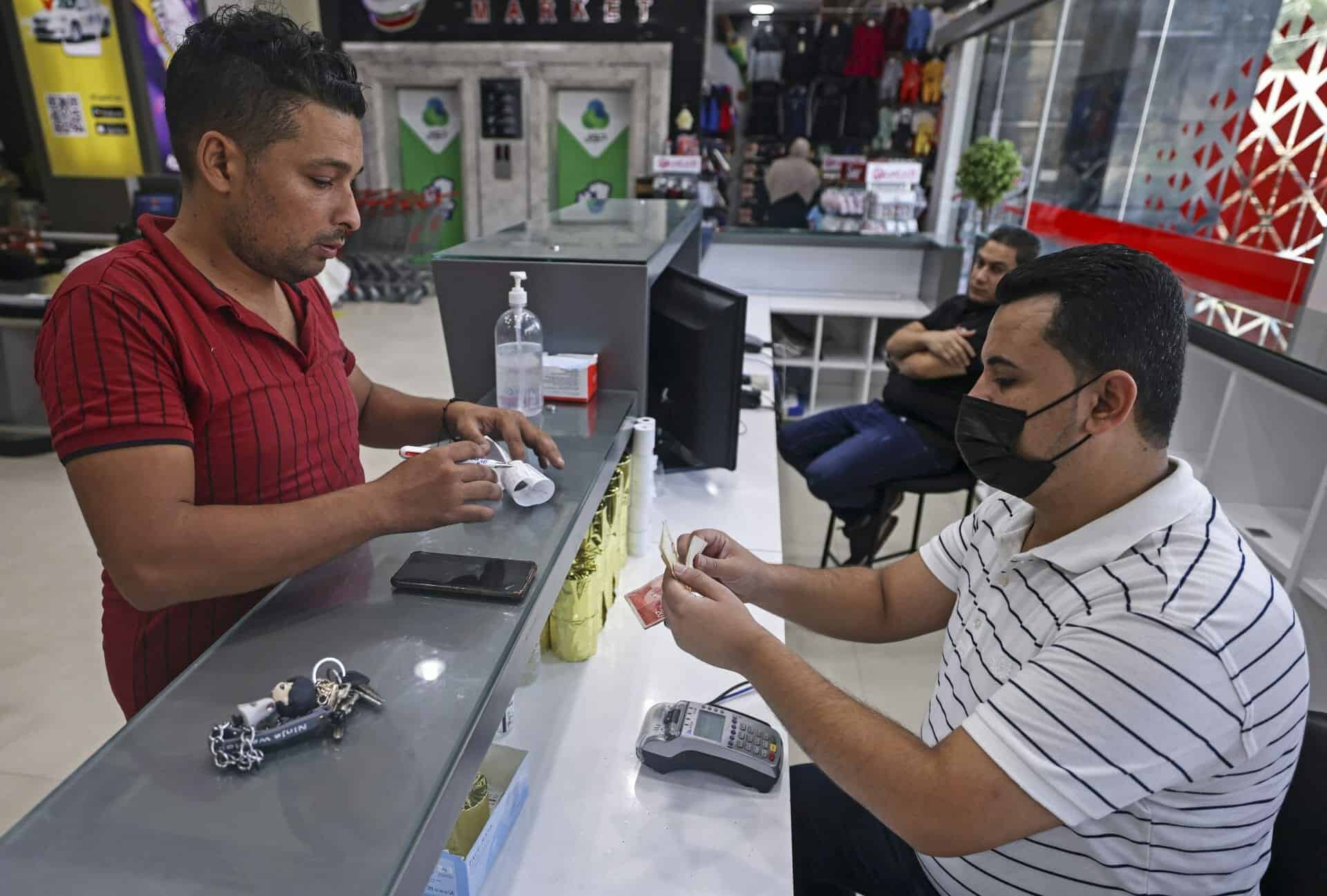Tens of thousands of impoverished families in the besieged Gaza Strip began receiving Qatari humanitarian funds on Thursday after Israel agreed to a new distribution mechanism involving the United Nations.
Recipients of the money queued from the early hours outside 300 distribution centers spread across the Hamas-ruled Palestinian enclave.
Qatari envoy Mohammed al-Emadi said the $100 handouts would be provided to “95,000 needy families” in Gaza through the UN.
Qatari support is considered a crucial lifeline for impoverished Palestinians living in Gaza, which has been under Israeli blockade since 2007.
Before the latest flare-up between Israel and Palestinian armed groups in May, the flow of funds from Qatar was considered vital to maintaining relative calm between the two sides.
But Israel had objected to a resumption of the funding under the terms that existed before May’s hostilities, claiming the money was being used by armed groups rather than strictly for humanitarian needs.
The stalemate was resolved in August, when Israel and Qatar announced the approval of a new mechanism to distribute the funds, with money transferred directly to individuals by the UN.
Under the scheme, Israeli-approved recipients in Gaza will be issued UN credit cards to withdraw the funds.
The UN’s special coordinator for the Middle East peace process said the distribution would continue “throughout this week”.
Naseem al-Haddad, 47, said the hundred dollars he received “improved his economic situation” and his prospects for finding a job.”
“At this moment, I need another $1,000 in light of the difficult economic situation” in the Gaza Strip, he said.
Fayez Nabhan, a 41-year-old taxi driver and father of five, said life was “getting a little better” now that he was receiving aid again.
Qatar distributes much-needed aid in besieged Gaza

- The $100 handouts would be provided to 95,000 needy families through the UN, said Qatari envoy Mohammed al-Emadi.
- The UN's special coordinator for the Middle East peace process said the distribution would continue "throughout this week".






